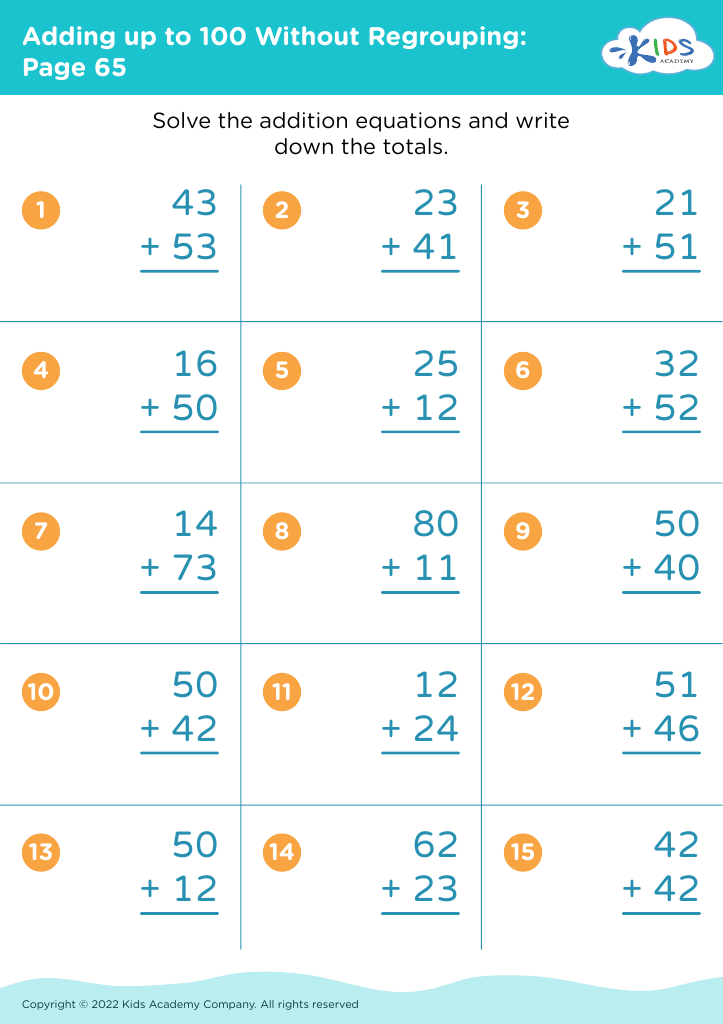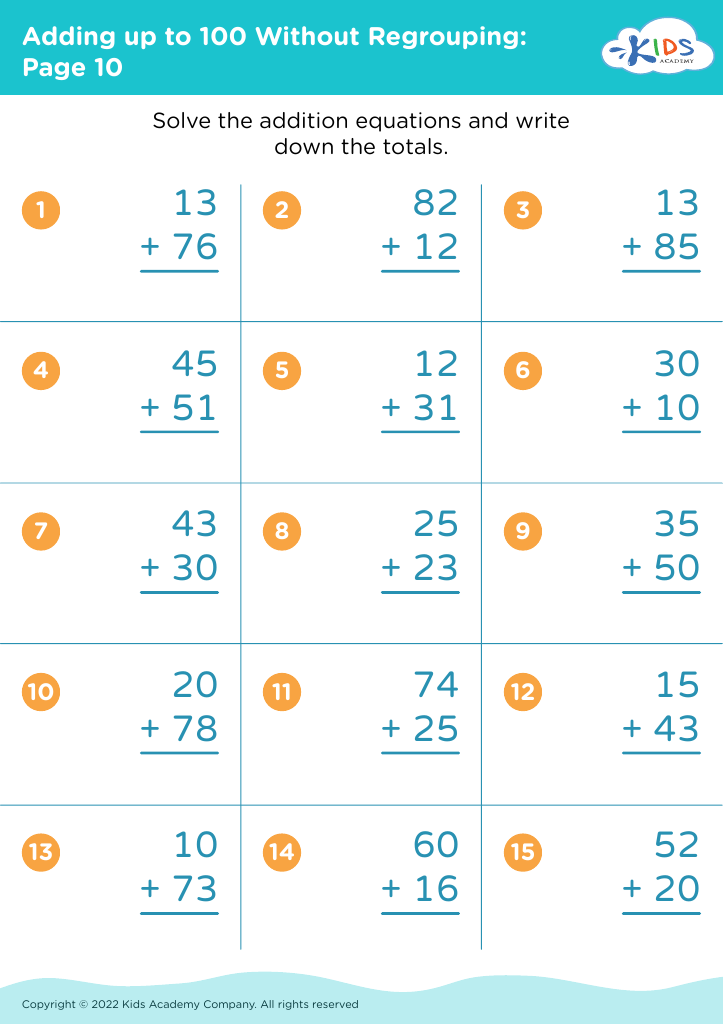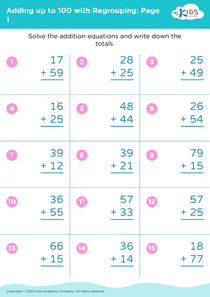Basic Math Skills Grade 2 Adding up to 100 Without Regrouping Worksheets
4 filtered results
-
From - To
Our "Basic Math Skills Grade 2 Adding Up to 100 Without Regrouping Worksheets" are perfect for young learners developing their addition abilities. Tailored specifically for second graders, these worksheets provide essential practice in adding numbers up to 100 without the complexity of regrouping. Each worksheet is designed to reinforce core math concepts, enhance calculation speed, and build confidence. Engaging exercises and kid-friendly themes make learning fun and effective. Ideal for both classroom and home use, these worksheets are an excellent resource for teachers and parents aiming to support their kids' mathematical journeys. Download now and start adding effortlessly!
Parents and teachers should prioritize the development of basic math skills in second grade, especially the ability to add numbers up to 100 without regrouping, due to several critical reasons. First, mastering this fundamental skill lays the groundwork for more complex mathematical concepts. It ensures that students have a strong understanding of number sense and the base-10 system, which are crucial for advanced calculations and problem-solving tasks they will encounter in later grades.
Moreover, proficiency in basic addition boosts a child’s confidence and fosters a positive attitude toward math. When students can tackle math assignments with ease, they are more likely to enjoy learning and engage actively in their education. It demystifies mathematics, making it less intimidating and more accessible, which is vital for sustained academic interest and performance.
Effective math skills also translate into real-life applications, such as quick mental calculations, budgeting, and even time management. These everyday life skills are indispensable, and early mastery empowers children to apply their knowledge pragmatically.
In conclusion, ensuring that second graders can add up to 100 without regrouping not only prepares them for future academic challenges but also instills a sense of confidence and equips them with essential life skills. It is a crucial step towards holistic educational development.


















